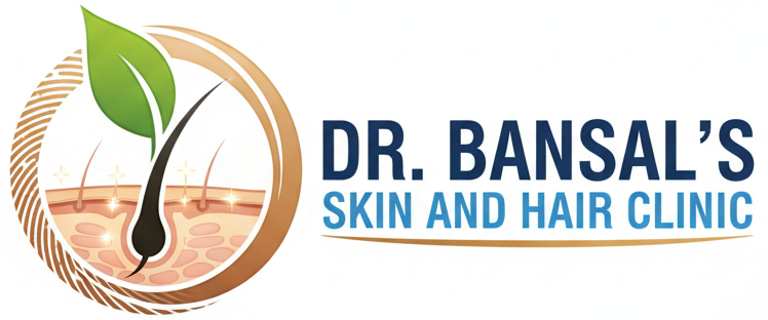Medicine Side Effects Loss Treatment In Indore
Dr. Bansal's Hair Clinic, Indore
About Medication-induced Hair Loss
Drug-induced alopecia results from interference in the cycling of hair growth by some drugs, leading either to shedding or thinning.
It can appear weeks to months after commencing a drug and is usually reversible upon cessation or substitution of medication.
⚕️ How It Happens
Hair grows in 3 cardinal phases:
Anagen (growth phase) – 85–90% of hair
Catagen, or transition phase – 1–2%
Telogen (resting/shedding phase) – 10–15%
Some medications cause an early induction of hairs into the telogen phase-onset of telogen effluvium-whereas others damage follicles during anagen growth, such as anagen effluvium from chemotherapy.
Common Medications That Cause Hair Loss
Medication Type Examples: persuasion
Chemotherapeutic agents: Doxorubicin, Cyclophosphamide, Anagen effluvium (rapid loss)
Anticoagulants (blood thinners): Hepparin, Warfarin. Telogen effluvium
Beta-blockers (heart meds): Propranolol, Atenolol, Hair thinning
Antidepressants sertraline, fluoxetine, diffuse hair shedding
Anticonvulsants: Valproic acid, Carbamazepine. Hair loss + texture change
Retinoids (vitamin A derivatives), Isotretinoin, Follicle miniaturization
Hormonal therapies: Birth control pills, hormone blockers, hormone-related thinning
Antithyroid drugs Methimazole, Carbimazole, disrupt the balance between thyroid and hair
Cholesterol-lowering medications, Statins, decreased scalp blood flow
Immunosuppressants Methotrexate, Azathioprine, damage follicle growth
What to Do (Treatment & Prevention)
1. Consult Your Doctor Before Stopping the Medicine
Never stop or adjust prescribed medication on your own-your doctor can:
Dose adjustment
Switch to a hair-friendly alternative.
Add supplements or treatments that may reduce hair loss.
2. Promoting Hair Growth
Topical Treatments
Minoxidil (Rogaine 2–5%)
→ Stimulates new hair growth and prolongs the growth phase
→ Apply twice daily to the affected area
???? Nutritional Supplements
Contraindications: Only take under medical advice:
Biotin or Vitamin B7: Hair shaft strengthening
Iron & Zinc: Prevent the Deficiency-Induced Shedding
Vitamin D - helps with follicle health
Omega-3 & B-complex reduce inflammation and stress impact.
???? Medical Procedures (if severe)
PRP therapy: Platelet-Rich Plasma–Strengthening the weak follicles
Low-Level Laser Therapy (LLLT) - stimulates hair regrowth
Hair transplantation for permanent follicle damage
3. Diet for Recovery
Eat foods rich in:
Protein: eggs, fish, beans, chicken
Iron: spinach, red meat, lentils
Zinc & Selenium: pumpkin seeds, nuts
Omega-3 fatty acids: salmon, flaxseeds, walnuts
Antioxidants: berries, green tea, citrus fruits
4. Scalp & Hair Care
A mild sulfate-free shampoo will help minimize the irritation.
Massage your scalp for 5–10 minutes daily to improve circulation.
Apply light oils (coconut, rosemary, argan) 2–3 times/week.
Protect hair from the sun, pollution, and heat styling.
X What Not to Do
❌ Don’t stop your medication abruptly; it can be dangerous.
Avoid using harsh chemical dyes, relaxers, or bleach. ❌ Don't over-wash or over-comb hair. Avoid tight hairstyles, such as ponytails and buns, that pull the follicles. ❌ Don’t take random “hair growth pills” online, because most of them are unsafe. Avoid stress, smoking, and sleep deprivation, as these will slow down regrowth.
Care
Dr. Shreyas Bansal has over 46 years of experience in promoting hair health and wellness. At Dr. Bansal’s Homeopathy Clinic, located at 2 Manish Bagh, Sapna Sangeeta Road, Indore, we provide personalised care to strengthen your hair, improve scalp health, and restore confidence naturally.
Health Hairs AT
Beauty
+91 9926120111
© 2025. All rights reserved.
